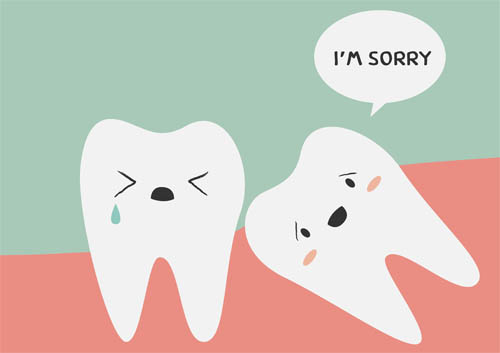How do I handle my child’s dental emergency?
April 3rd, 2019

Kids are active, and with lots of activity comes the potential for mishaps. Before an emergency occurs, you’d be smart to stay informed about the problems your child may encounter.
Here are a few things you should keep in mind about teething pain, loose baby teeth, and other common dental issues.
Teething Pain
Discomfort while teething is common for babies from the time they are four months until they are about two and a half. Teething can cause drooling, tender gums, and irritability. To help relieve your child’s discomfort, gently rub his or her gums with wet gauze or offer a cold teething ring.
Loose Baby Tooth
It is normal for a child’s first set of teeth to become loose and fall out. If a tooth is knocked out by a forceful blow, however, you should make an appointment with our office to determine whether any damage may have occurred. You should also book an appointment if the baby tooth that’s on its way out develops a crack but doesn’t fully fall out.
Issues with Permanent Teeth
Sometimes, permanent teeth can come in before the baby teeth have fallen out. In this event, schedule an appointment with us even if your child does not report discomfort or pain. Drs. Sidney and Jacob Kelly will need to determine if the permanent teeth are coming in correctly to avoid problems later on.
Bleeding Gums
Bleeding gums can have multiple causes: periodontal disease, rough brushing, or an injury to the gum tissue. If your child experiences heavy bleeding, it’s vital to call our office immediately. Wash the youngster’s mouth with warm salt water and put gentle pressure on the area to soothe it before your appointment.
Drs. Sidney and Jacob Kelly and our team are always here to address any concerns you may have regarding your child’s dental health. Contact our Roseville, CA office for emergency services 24 hours a day, seven days a week.



